|
Theodore Roosevelt became president in 1901 As president from 1901 to 1909, Theodore Roosevelt believed America had a big role to play in the world. One good example is his push to have the U.S. build the Panama Canal. Roosevelt was born into a wealthy New York family, but his life had its share of hardships. He was a sickly child, and had to struggle to build himself up physically. Roosevelt embraced what he called "the strenuous life" - that is, a life of action and involvement. He loved history and riding horses. He organized and led the Rough Riders volunteer army unit that served in the Spanish-American War in 1898. Theodore Roosevelt was vice president in 1901 when President William McKinley was shot by an assassin. When McKinley died, Roosevelt became president. |
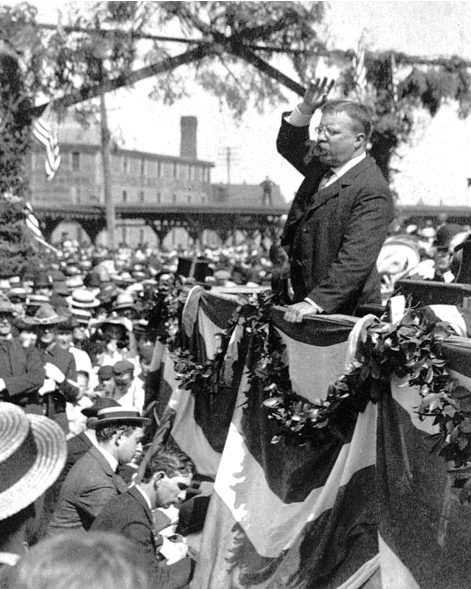 |
|
TR wanted America to build the Panama Canal Theodore Roosevelt's most famous project was the Panama Canal. It is the waterway that was built in the early 1900s across the strip of land connecting North and South America. Notice how the canal dug across Panama saves ships many thousands of miles of travel between the Atlantic and Pacific oceans. Before the canal was built, ships had to make a long voyage around the tip of South America. The U.S. needed to get permission to build the canal from the country of Colombia, because in those days Panama was part of that country. Colombia refused, however, apparently hoping to be offered a bigger payment. |
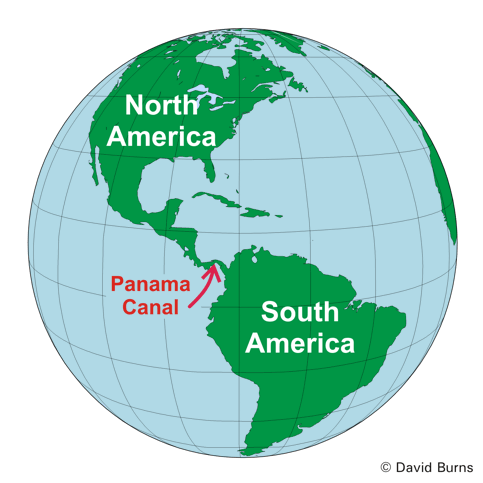 |
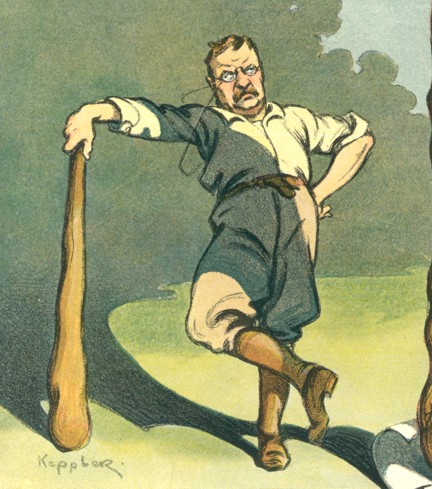 |
TR used "Big Stick Diplomacy" to get it started Roosevelt did not give up on the canal project just because Colombia said "No!" He knew that many people in Panama wanted to break away from Colombia and form a new, independent country. Roosevelt sent a message of support to leaders of the revolt, because he knew an independent Panama would want the canal built. President Roosevelt sent some American warships to the area as a show of force. They never fired a shot. Just by being there, though, the ships sent a clear message to Colombia to let Panama alone. Some of Roosevelt's critics started calling his actions Big Stick Diplomacy. It was a sarcastic way of criticizing the president for using a show of force, instead of normal diplomacy (talks) between nations. |
|
The
Panama Canal on the world map
Locate the Panama Canal, Panama, and Colombia on the map below. You
should also be able to identify the continents
and oceans.
|
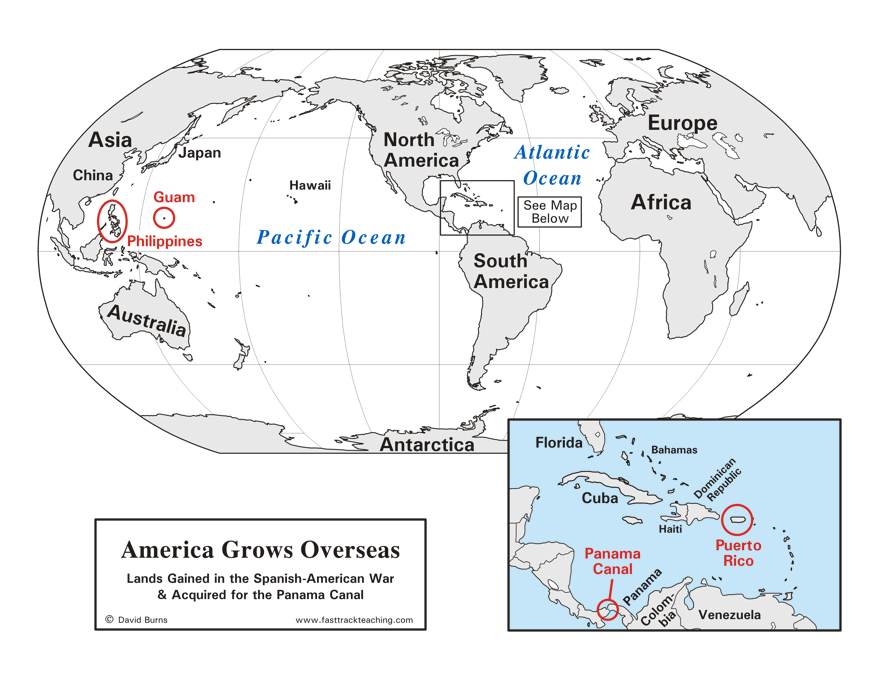
|
It
was not an easy dig!
Building the
Panama Canal was an incredibly difficult challenge. There were
few if any other countries at that time with the money and engineering
talent to succeed on such a vast project. The French had tried
years before, and had given up. The photo shows
one area of digging.
|
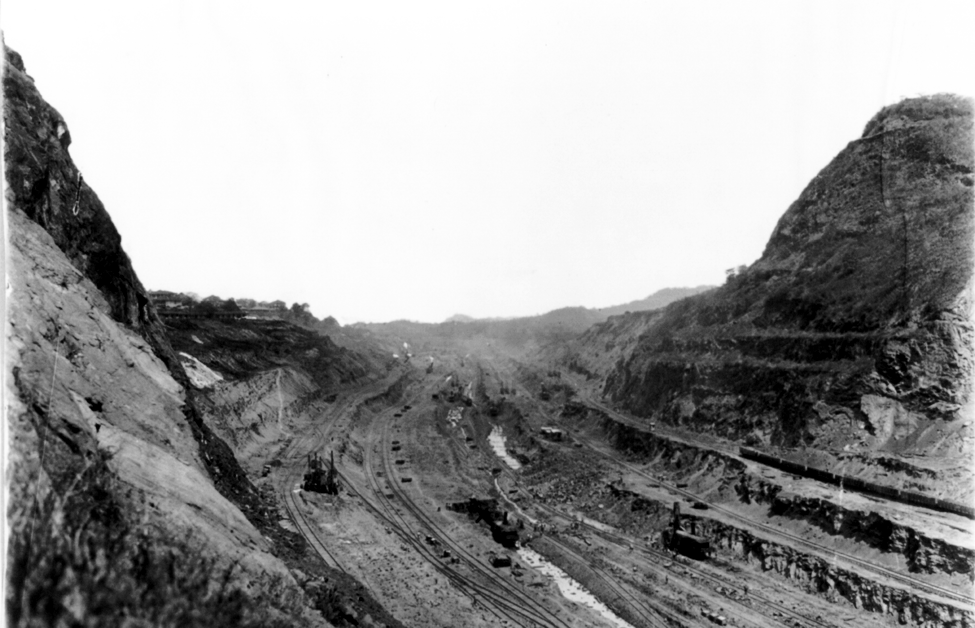
|
Think
BIG! Very BIG!
The
work included gigantic engineering projects, such as the series of
locks
that raised ships from sea level to the level of the canal, and then
lowered them back to sea level at the other end. The photo below
shows ships entering the canal's locks from the Atlantic Ocean.
|
|
The
canal opened in 1914
The
photo below shows ships moving through a section of the Panama
Canal. The canal brought enormous benefits to nations all over
the world, not just the U.S. As a show of friendship, the U.S.
gave ownership of the canal to the government of Panama in 1999.
|
|
At
the other end of the canal
This
photo shows the locks on the Pacific Ocean end of the canal. A
ship is entering the lock, and will be lifted from sea level up to the
canal. On the left side of the photo you can see the lock that
lowers ships from the canal level down to sea level.
|
Photos and images are from the Library of Congress.
The maps are by David Burns.
Some have been edited or resized for this page.
|
Copyright Notice
Copyright 2009, 2017 by David Burns. All rights reserved. As a guide to the Virginia Standards of Learning, some pages necessarily include phrases or sentences from that document, which is available online from the Virginia Department of Education. The author's copyright extends to the original text and graphics, unique design and layout, and related material. |